Lanterns out for Arctic protesters
I have just come back from Bonn, where Greenpeace supporters joined in their own version of the traditional lantern processions which take place here at this time. Children and parents carry home made lanterns to mark St.Martin’s day, in memory of the saint who cut his cloak in half to give warmth to a beggar. In the Greenpeace marches held across Germany today, the marchers were swinging their lanterns in an appeal for the release of the Arctic 30, the crew of the Arctic Sunrise still under arrest in Russia. The procession in Bonn was heading for the Russian consulate here. It was a well timed event, marking two months of imprisonment for the peaceful protesters and the UN climate conference in Warsaw at the halfway mark.
Philippines, Warsaw, Arctic – join the dots
I have very mixed feelings as the UN climate conference gets underway in Warsaw just as the Philippines are devastated by what seems to have been the worst storm ever. The experts tell us climate change is extremely likely to be increasing the severity of extreme weather events. It is not hard to see the possibility of a link. And where does the Arctic come in? Well, the only Arctic headlines at the moment would seem to be the ongoing saga of the Greenpeace activists still under arrest in Russia after the protest at the Prirazlomnaya Arctic oil rig. Connection clear?
Amongst the mixed bag of emotions I am currently shuffling are horror at the extent of the storm devastation in the Philippines, intense sympathy with the victims, helplessness in the face of the huge force of typhoon Haiyan. Then comes deep frustration, verging on anger at the failure of the world’s big emitters so far to take action to reduce emissions and avert what the world’s scientists and the UN tell us will be catastrophic climate change, if we don’t keep to the two degree target. Add to this my complete failure to understand the continuing rush to get oil from the Arctic – regardless of the fact that this would, in turn, contribute further to the vicious circle of climate change.
Some 13% of the world’s remaining undiscovered oil reserves, 30% of its gas are estimated to be in the Arctic. The higher the price of energy, the faster the ice melts, the greater the international interest in a region becoming increasingly accessible as the world continues to warm. At the same time concern is growing amongst those who see development as a threat to the sensitive environment of the High North and the lifestyles of indigenous peoples there – and an increasing risk for the global climate: the burning of more fossil fuels would further intensify global change by producing more CO2 emissions. According to the World Energy Outlook 2012, two thirds of our known fossil fuel reserves would have to remain in the earth, if the goal of limiting temperature rise to two degrees Celsius and averting catastrophic climate change is to be reached.
The harsh nature of Russia’s reaction to the Greenpeace protest at the Prirazlomnaya oil rig in the Arctic demonstrates how important the region has become for the government in Moscow. While Greenpeace has stepped up its campaign to stop oil drilling in the Arctic and have the activists and ship released, the business of Arctic exploration and development just “carries on regardless”. Rosneft, Statoil, Italy’s ENI, Exxon Mobil, Shell… are all active in the Arctic. China and India are also keen. The UK recently unveiled plans to become a hub for Arctic oil exploration. Meanwhile, Greenpeace, is campaigning for the area around the North Pole to be declared a sanctuary and protected from drilling or other industrial exploitation. In addition to environmental campaign groups, the “Fossil Free Campaign” initiated by US American Bill Mc Kibben is gaining influence, trying to persuade companies and institutions to withdraw investments from fossil fuel-related enterprises. Perhaps that will be the way to bring about a change of heart?
Returning to the UN climate talks in Warsaw, my mixed bag of emotions unfortunately does not contain a lot of optimism at the moment. Maybe just a sliver of hope that all is not yet lost. But looking at host country Poland’s record as a coal country and recent statements by its political leaders insisting this would remain so, and bearing in mind that the country has consistently blocked the EU from adopting stricter climate goals (which, admittedly, appears to suit many other member states), it is hard to imagine this conference bringing much in the way of progress. While top emitter China is paying more attention to its environment and climate policies, the country’s rejection of international binding targets makes considerable progress unlikely.
It would be wrong to use the typhoon disaster in the Philippines just to attract more attention to the climate conference in Poland. Clearly getting international aid out to the region has to have top priority. But there is surely a moral imperative to act upon the warnings of our scientists that business as usual is extremely likely to increase the severity of storm and flood events, which hurt the needy worst of all? And would that not have to include the realization that burning fossil fuels is helping to melt the Arctic twice as fast as the rest of the planet – with negative effects not only on the people and ecosystems in the region, but – through feedback effects, sea level rise, increasing ocean acidity etc – on the regulation of the world climate? And thus, that investing in renewable energies and the transition to a green economy makes more sense than Arctic oil exploration?
Melting permafrost eroding Siberian coasts
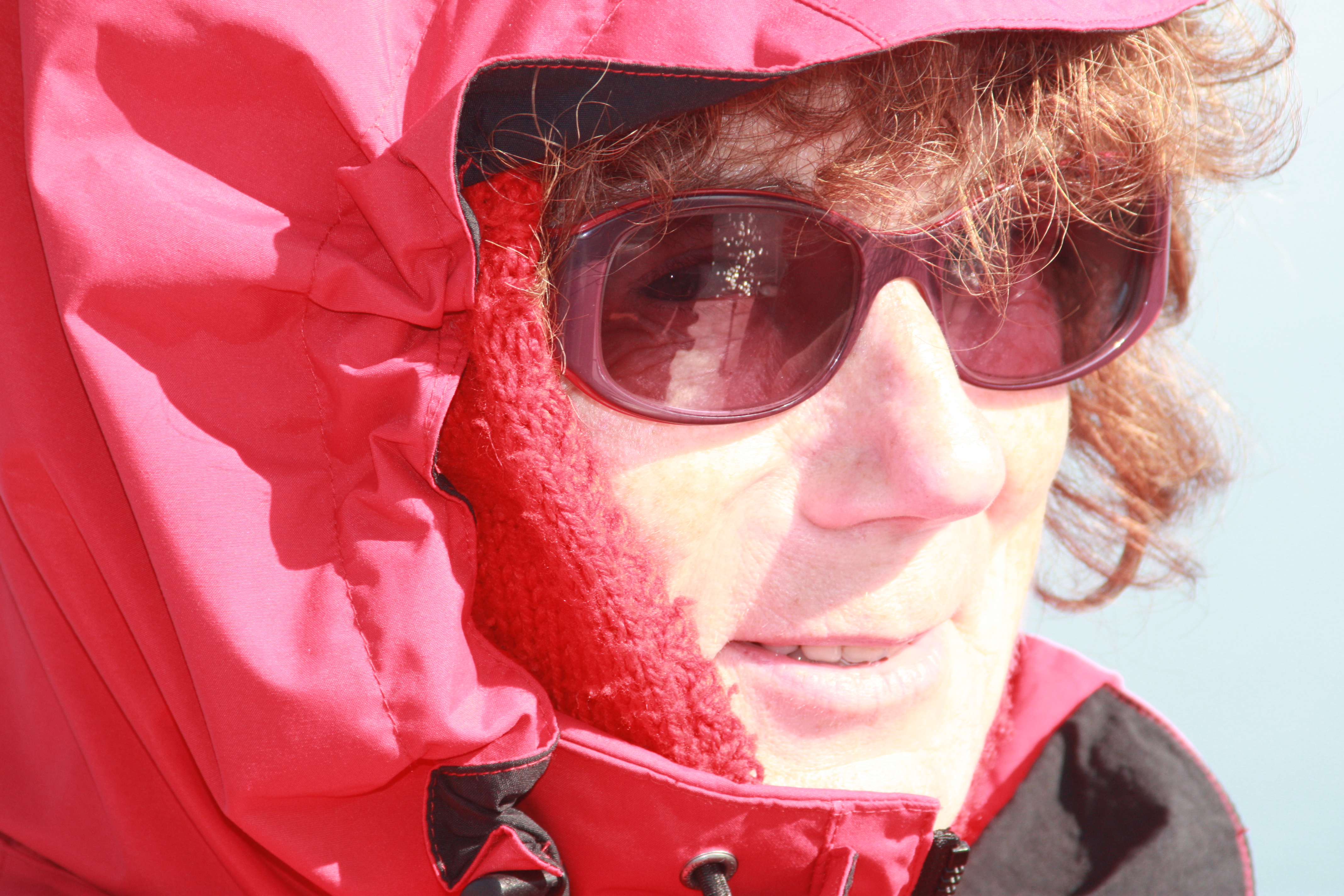 Rising summer temperatures and dwindling Arctic sea ice are eroding the cliffs of Eastern Siberia at an increasing pace. Scientists from AWI, the German Alfred Wegener Institute and the Helmholtz Centre for Polar and Marine Research have been evaluating data and aerial photographs of the coastal regions from the last 40 years. As the sea ice recedes more and more from year to year, the cliffs are being undermined by waves. At the same time, the land surface is beginning to sink.
Rising summer temperatures and dwindling Arctic sea ice are eroding the cliffs of Eastern Siberia at an increasing pace. Scientists from AWI, the German Alfred Wegener Institute and the Helmholtz Centre for Polar and Marine Research have been evaluating data and aerial photographs of the coastal regions from the last 40 years. As the sea ice recedes more and more from year to year, the cliffs are being undermined by waves. At the same time, the land surface is beginning to sink.

This graphic, courtesy of AWI, shows the interaction between permafrost melt, wave action and coastal erosion
Disappearing island
The research documents warming summers. While the temperatures during the period looked at were higher than zero degrees Celsius on an average of 110 days per year, the scientists counted a total of 127 days in the years 2010 and 2011. In 2012, the number of days with temperatures above freezing increased to 134.The number of summer days on which the sea ice in the southern Laptew Sea vanishes completely is also on the increase. “During the past two decades, there were, on average, fewer than 80 ice-free days in this region per year. During the past three years, however, we counted 96 ice-free days on average. Thus, the waves can nibble at the permafrost coasts for approximately two more weeks each year,“ says AWI permafrost researcher Paul Overduin.
Not only a problem in Siberia
Sea ice plays an important role in protecting coasts from waves. When this barrier is not there, the waves dig deep and erode land away. I saw the results of this first-hand during a trip to Barrow, Alaska, in 2008. I visited sites at Point Barrow, the northernmost point of the United States, where villages had been washed into the sea. On a trip to Greenland in 2009, I was amazed to see buildings being artificially cooled to avoid them sinking into the ground as warming temperatures melt the permafrost.
In the area of Siberia investigated by the German scientists, high cliffs protect the coastline. As the permafrost melts above and waves cut in from below, the cliffs are undermined and break off.
The erosion does not only have an impact on land. It also washes material into the sea, changing the quality of the water. Depending on the kind of erosion and the particular structure of the coast, between 88 and 800 tons of plant-, animal, and microorganism-based carbon are currently washed into the sea per year and kilometer of coastline – materials which were previously sealed in the permafrost, according to the AWI researchers. Once in the water, carbon may turn into carbon dioxide and, as a result, contribute to the acidification of the oceans.
The studies were conducted as part of the PROGRESS project which is funded by the German Federal Ministry of Education and Research. PROGRESS is the acronym for Potsdamer Forschungs- und Technologieverbund für Naturgefahren, Klimawandel und Nachhaltigkeit (Potsdam Research Cluster for Georisk Analysis, Environmental Change and Sustainability).
Greenpeace: Pirates, Hooligans – what next?
If it didn’t involve thirty committed conservationists being imprisoned and intimidated, I might be inclined to see the Russian authorities’ behaviour as something of a farce. Russia has now dropped allegations of piracy, but accused the activists of hooliganism, which still carries a long jail sentence. Pirates? Hooligans? What will they come up with next in their effort to keep the crew of the Arctic Sunrise in jail and hammer home the message that Russia takes its Arctic interests very seriously? The absurdity of the charges against protesters on behalf of an organisation famous for its often spectacular but always unarmed and peaceful demonstrations in the cause of environmental protection tells us a lot about Russia’s attitude towards the Arctic. “Russia takes on Greenpeace – and stakes its claim to the Arctic” is the headline of an article by Simon Shuster for Time World , which suggests Greenpeace met with the disproportionately harsh response because the Arctic oil rig protest came at a time when Russia was asserting its military presence in the Arctic – against a background of growing economic interest. Moscow has opened its first permanent military base in the Arctic since the fall of the Soviet Union. The Greenpeace stunt “gave Russia just the opportunity it needed to underscore the message of Admiral Kololyov (commander of Russia’s northern fleet): Do not tread on the Russian north”, Shuster writes. Indeed.
Shuster quotes Vladimir Chuprov, head of Greenpeace Russia, as admitting the timing of the protest “may have been inopportune”. Greenpeace chief Kumi Naidoo, who was personally involved in a similar protest last year, has stressed the organisation did not expect such a harsh response.There are those who criticize Greenpeace for staging the protest. Greenpeace critic Mika Mered, CEO of Polaris Consulting, writes in a commentary for the Arctic Journal Moscow’s reaction was “perfectly predictable”. Whether it was predictable or not – the treatment of the activists is drawing massive attention to what is happening in the High North. The race is in full swing for access to the Arctic’s resources. Research into the environmental impacts of oil and gas drilling and transport on the fragile Arctic eco-system and the development of technology to cope with a possible oil spill in icy waters are struggling to keep pace with the rapidity of commercial development. The Russian reaction to the Greenpeace protest has drawn widespread media and public attention to the rapidly growing international economic and political interest in the Arctic. More than any scaling of an oil rig alone could ever have done. And in the run-up to the next round of UN climate talks in Poland next month, let us not forget that it is climate change, caused to a large extent by the burning of fossil fuels, that is making the race for Arctic oil and gas possible.(No wonder UN Climate Chief Christina Figueras was reduced to tears by the lack of inaction on climate the other day).
Meanwhile, on a more positive note, a survey conducted by the Kremlin-backed Public Opinion Foundation on October 13th showed that 69 percent of Russians favour making the Arctic region a neutral zone – outside the control of sovereign states. See Moscow Times.
Also worth reading: “High North or High Tension”by retired US Navy Admiral James Stavridis in Foreign Policy.com. If we want to keep the peace in the Arctic, he says, “we have some work to do”.
Atlantic cod pushing out Arctic relatives?
When I visited the AWI Biological Institute on the German North Sea island of Helgoland last year for a story on how climate change is affecting marine life, the Institute’s Director Karen Wiltshire mentioned to me that cod was disappearing from the waters around the island. The Atlantic cod, it seems, are moving north, a trend confirmed by a recent research cruise by scientists from the Alfred-Wegener-Institute (AWI).
![]() read more
read more




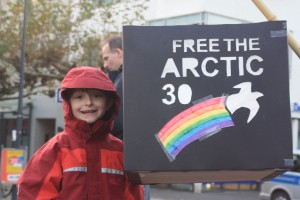



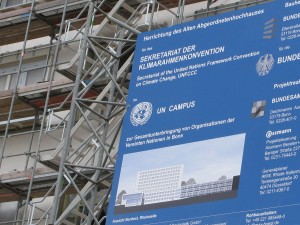
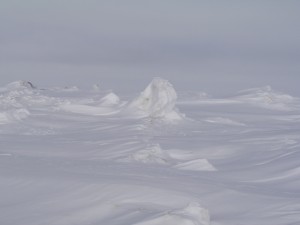
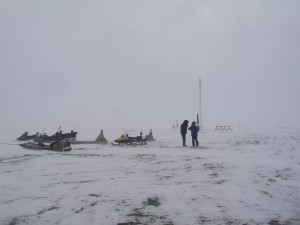
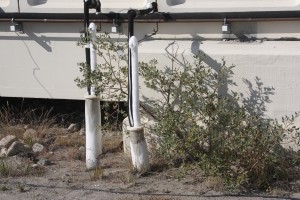
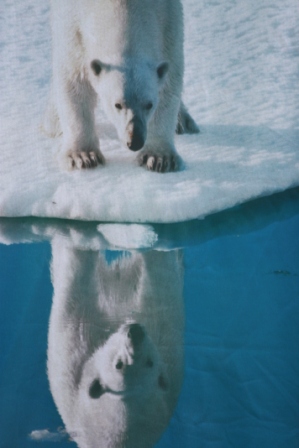
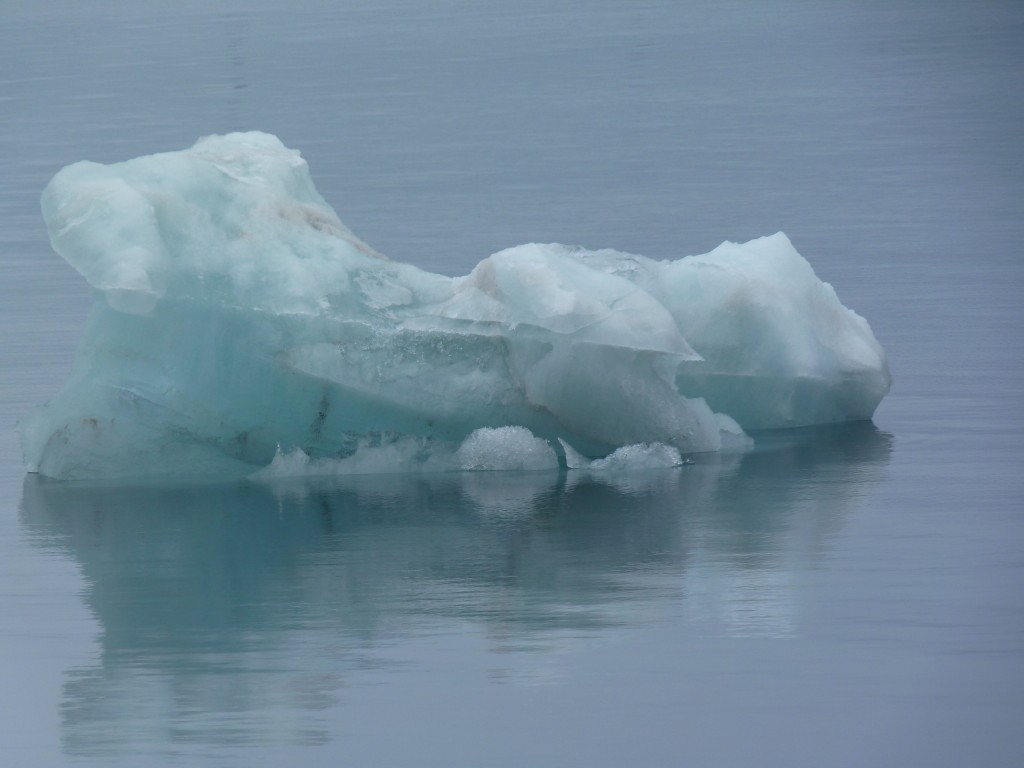
















Feedback